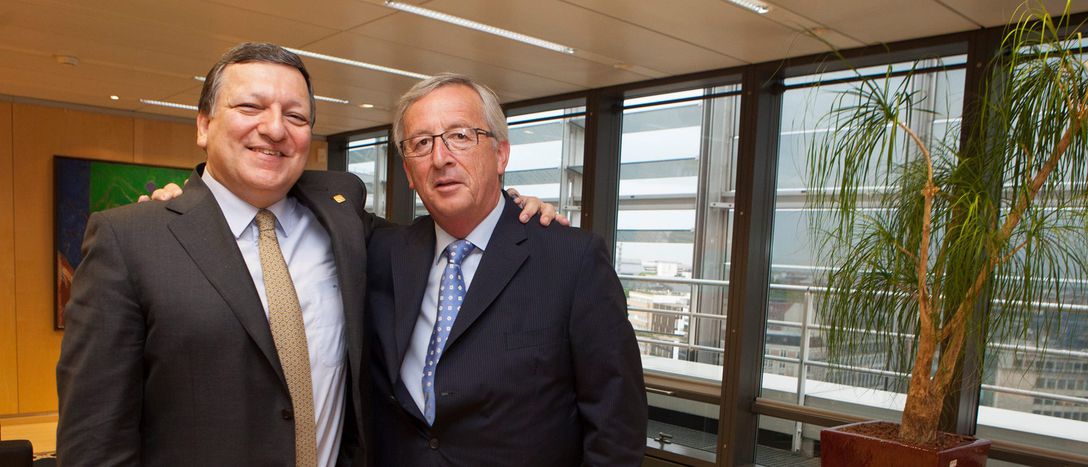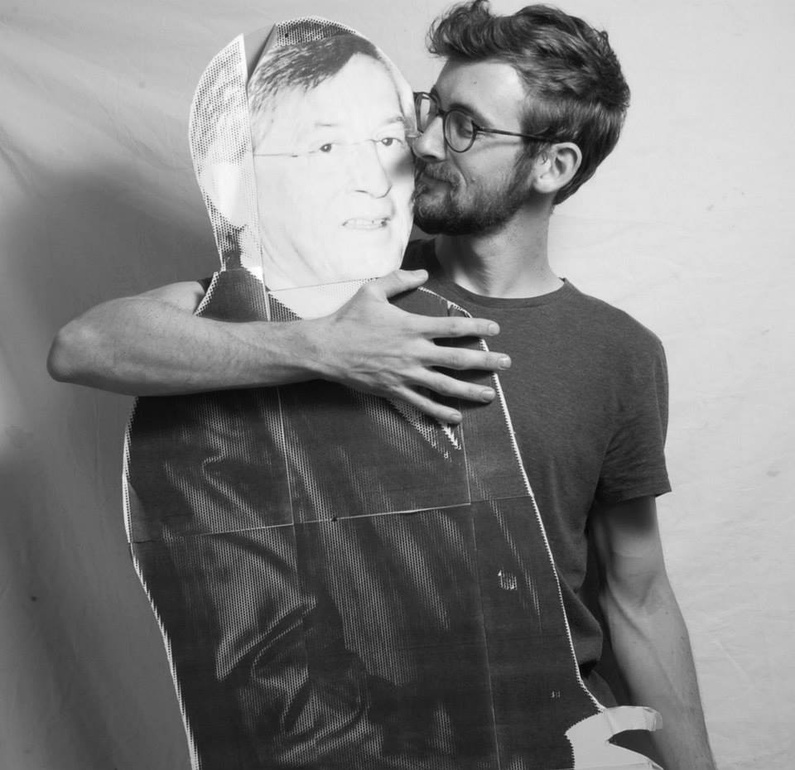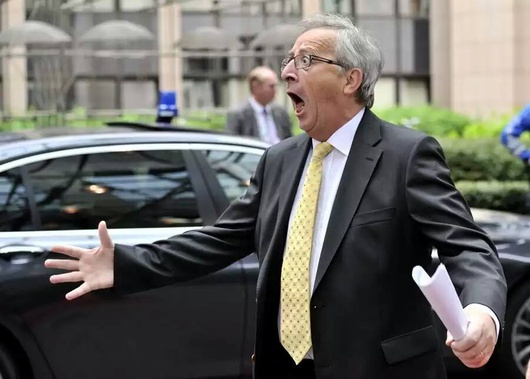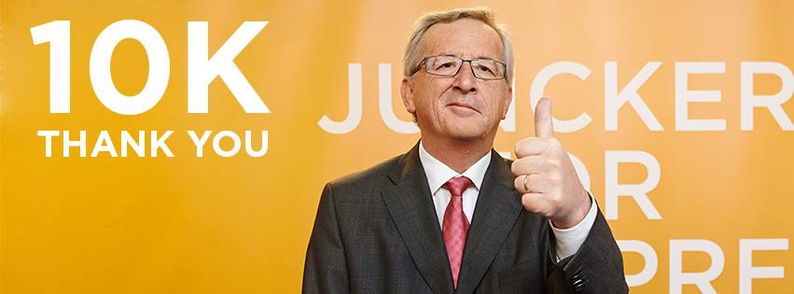
How Did Juncker Become President of the European Commission?
Published on
Translation by:
Kait BolongaroFriday afternoon, stormy in Brussels and the day of the Council of Europe. A day after visiting Ypres, ravaged a century before by the First World War, heads of state and governments were in Brussels. Two subjects lay at the heart of their negotiations.
Habemus President of the European Commission! In Brussels, on Friday June 27th, heads of state and governments agreed to nominate a new figure to lead this institution. For almost three weeks now, Jean-Claude Juncker has been presented as the most likely candidate. The news came in the middle of afternoon tea (and a storm), but how did this happen?
Right WIng Takes the EUropean Elections
In order to follow the storyline, we must return to the night of Sunday May 25th. The results of the European elections are clear: even if the right wing (the European People's Party, EPP — Editor) lost nearly 50 seats, it remains the most important party in the European Parliament. Due to the Eurosceptic vote, the left failed to gather enough votes. Even if we add the socialists, environmentalists, radical left and the centre together, no alternative majority emerges. Juncker is chosen by Parliament, including by his opponents for the Presidency of the Commission, as the victorious 'candidate' from the election results, and thus, is democratically elected.
But, as you probably already know, the candidate for the Commission is appointed by the Council of Europe or the heads of state, 'based on the results of the European elections.' In theory, things are pretty simple.
"English Gentlemen, Fire first"
But voilà. Some states do not agree with this opinion. First, British Prime Minister David Cameron. Slapped by the Eurosceptic UKIP led by Nigel Farage in the last elections, the leader has promised a referendum on British membership in the EU in 2017. Meanwhile, the general elections of 2015 (the legislative elections in which a new PM will be elected — Editor) are approaching. As he is under pressure, Cameron refuses to vote for Juncker, to use his veto and denigrates (echoed by the British press) the former Prime Minister of Luxembourg, depicting him as a man of the past. According to Cameron, only the states should choose the President of the Commission.
 Initially, this is also what Angela Merkel hoped for. As usual, the powerful German Chancellor has flipflopped and intends to challenge the results of the European elections (even though her own party campaigned for Juncker when he was nominated for the elections — Editor). She hesitates and then tries to build a coalition with her counterparts in the Netherlands and Sweden. The image taken by the AFP of the four prime ministers in a boat was widely shared on Twitter and reveals the charm of this mini-coalition, and by denigrating Juncker, dismisses the emergence of a European democracy.
Initially, this is also what Angela Merkel hoped for. As usual, the powerful German Chancellor has flipflopped and intends to challenge the results of the European elections (even though her own party campaigned for Juncker when he was nominated for the elections — Editor). She hesitates and then tries to build a coalition with her counterparts in the Netherlands and Sweden. The image taken by the AFP of the four prime ministers in a boat was widely shared on Twitter and reveals the charm of this mini-coalition, and by denigrating Juncker, dismisses the emergence of a European democracy.
The Only Vote of its Kind
However, the pressure is too much to bear. In favour of a nascent democracy, a new word enters the European vocabulary: 'Spitzenkandidat' (designated leader — Editor). Merkel changes her mind. Her party, the CDU, supports Juncker; meanwhile, the Social Democrats (SPD) recognise their defeat and rush to support Juncker. Even Tsipras, the Greek candidate from the radical left, admits it takes someone from Luxembourg, a country with dubious tax laws, to be President of the European Commission. For 15 days, the Euro-bubble is divided between the United Kingdom and the rest. The British press is entertaining with its dramatic headlines including Juncker has Nazi parents or Juncker drinks cognac for breakfast.
Knowing that he was not in a favourable position (especially since he did not propose an alternative), David Cameron dares to break with European consensus, leaving himself to become a collateral victim. It has been 30 years since the heads of state had a split vote. Thus, Juncker was elected this stormy Friday in Brussels, 26 votes against two (UK and Hungary — two right-wing governments — Editor).
Revolution? Redirection?
The vote ends a decade of José Manuel Barroso's leadership in the Berlaymont (headquarters of the European Commission — Editor), a term that no one will regret in the end. However, to say that Jean-Claude Juncker is the right legitimate candidate is still a stretch. Indeed, he is legitimate but ...
59-year-old Juncker assures that he is Barroso's clone (who is 58), and therefore, it will be business as usual, following the path set out by the Portuguese. He entered the government of Luxembourg at age 28, playing a part in the negotiations of the Treaty of Maastricht in the late 1980s, before becoming President of the Eurogroup (i.e. 'Mr. Euro') during the darkest hours the public debt crisis.
On July 16th, it will be time for the MEPs to vote to confirm Juncker's new position. In other words, the last opportunity for some voices to rise against the status quo of leaders in Brussels and the last chance to give a facelift to European elites.
SEE: The TWITTER Account of the Brussels TEAM TO KNOW More THAN OTHERS About WHAT HAPPENS IN THE EUROPEAN INSTITUTIONS.
Translated from Comment Juncker est devenu Président de la Commission européenne ?



